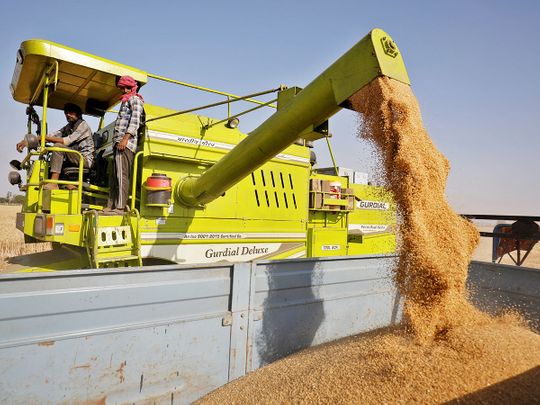
Cairo: The world’s top wheat importer Egypt said on Wednesday it is to receive $500 million from the World Bank to alleviate the impact of war between its main suppliers Russia and Ukraine.
“The World Bank financing will support the government’s efforts to meet food needs and enhance resilience to future shocks,” International Cooperation Minister Rania Al Mashat said in a statement.
Egypt’s food security has been under mounting pressure since Russia attacked Ukraine in late February causing massive disruption to exports from Black Sea ports.
Before the attack, the two countries accounted for 85 per cent of Egypt’s wheat imports.
The new tranche of World Bank financing will go towards “funding wheat purchases” as well as “increasing wheat storage capacities” in anticipation of future crises, the ministry said.
Since the war began, the government has already ramped up wheat purchases from domestic farmers as well as trialling wheat substitutes in a bid to counter the supply shortfall.
On Tuesday, state bakeries in New Valley province in the southwest hailed successful trials of “sweet potato bread”, Egyptian media reported.
The adjusted recipes use sweet potato to supplement wheat in the flour used to make state-subsidised flatbread - an everyday staple for the country’s 103 million people.
Some 71.5 million Egyptians rely on bread subsidies, which account for 57 per cent of the state’s subsidy budget, according to official figures.
Soaring world commodity prices helped to push Egyptian inflation to a three-year high of 15.3 per cent in June, according to official figures.
In late March, the Central Bank of Egypt allowed the Egyptian pound to depreciate against the dollar, causing it to lose around 18 per cent of its value overnight.
Foreign currency reserves fell around $6 billion in April and May to stand at $35.5 billion, as a result of moves “to calm the markets” as well as “external debt repayments”, the bank said.
To help weather the crisis, Egypt has requested a new loan from the International Monetary Fund, that will add to an already sizeable foreign debt equivalent to almost 90 per cent of GDP.
On a visit to Cairo earlier this month, European Commission chief Ursula von der Leyen pledged “immediate relief of 100 million euros” to support food security in Egypt.








